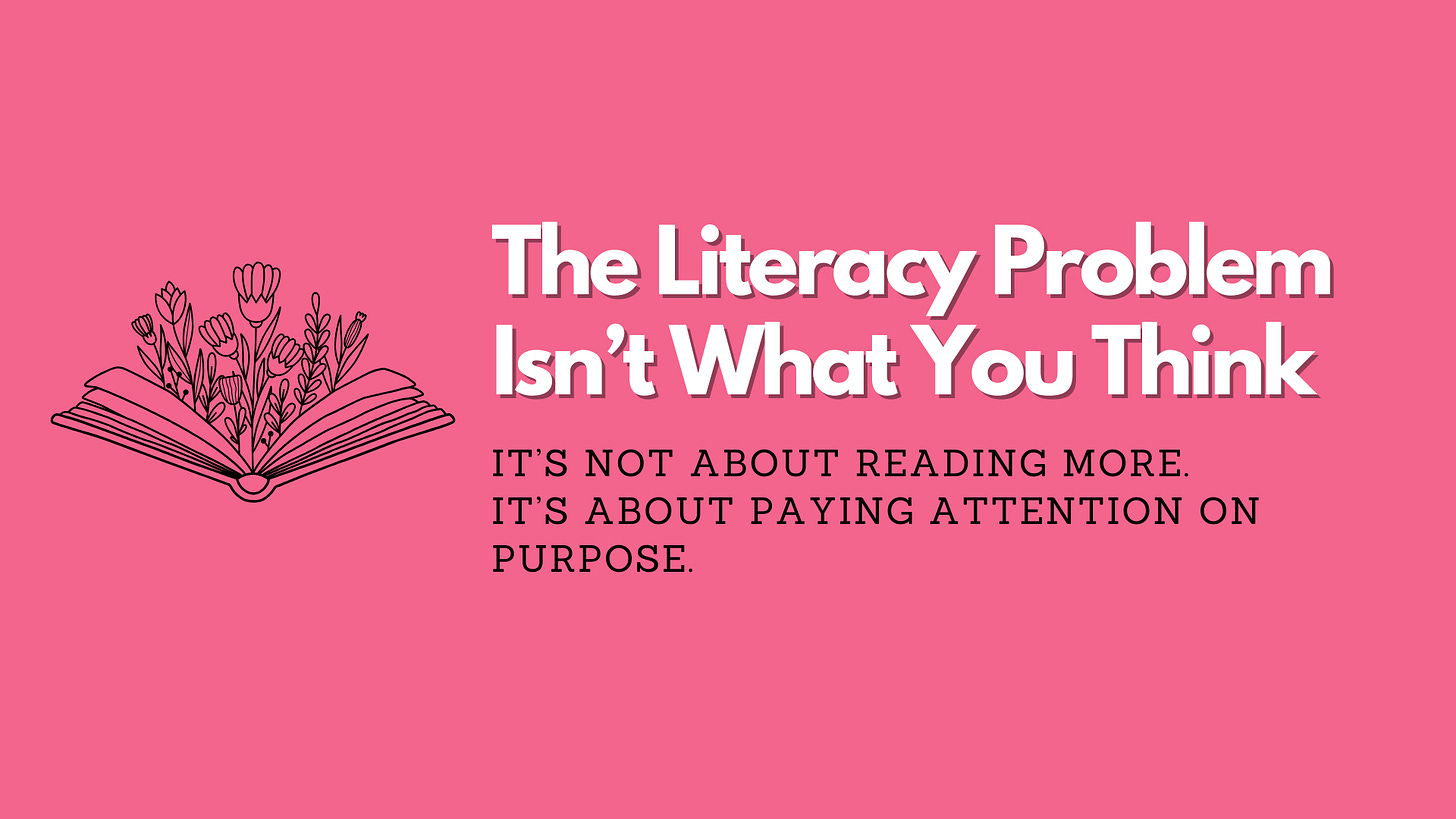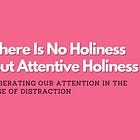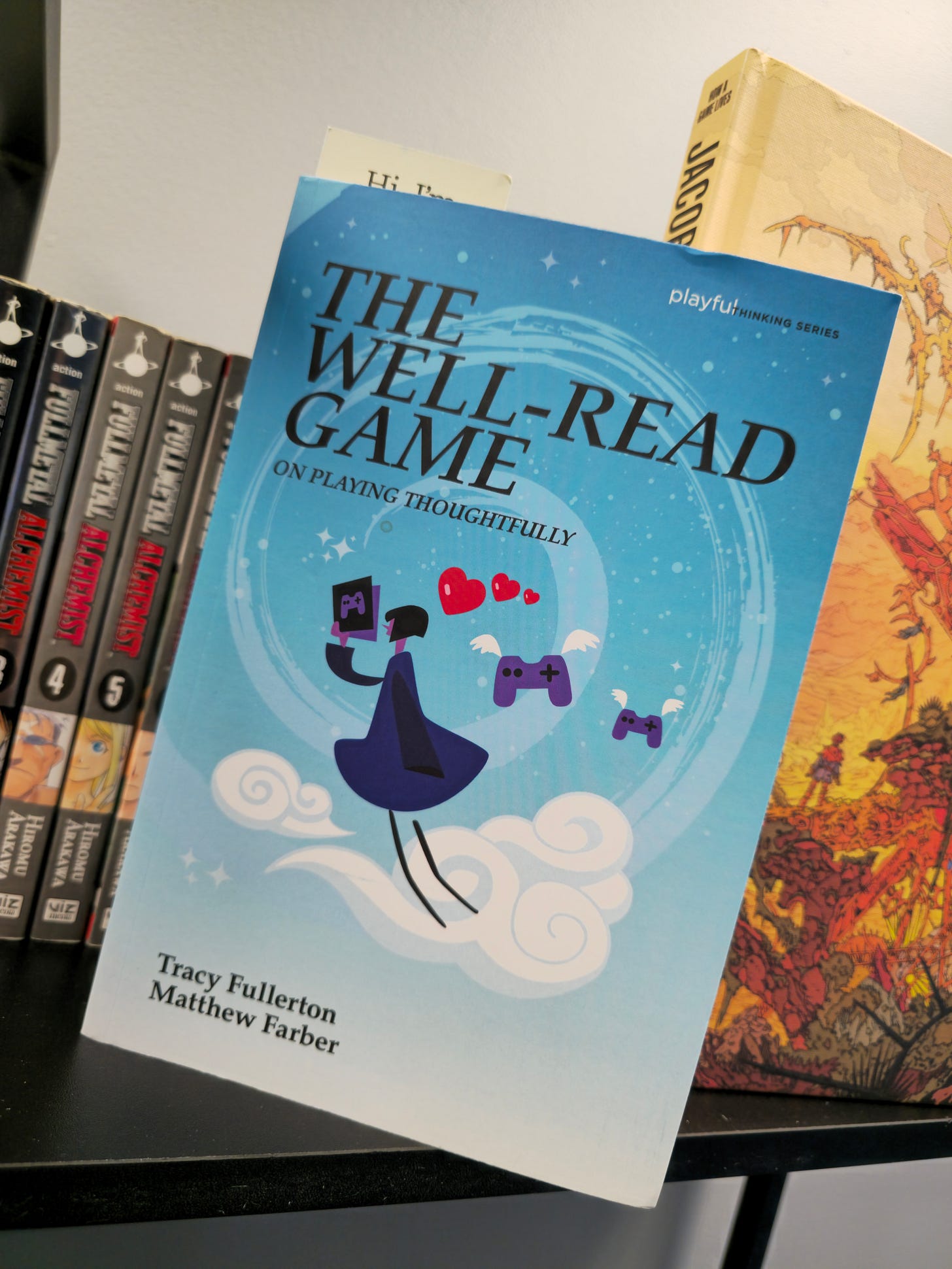The Literacy Problem Isn’t What You Think
It’s not about reading more. It’s about paying attention on purpose.
Hot take: the real literacy crisis isn’t that people don’t read enough books.
The real problem is that we aren’t experiencing art—books, shows, podcasts, games—on purpose.
We binge. We scroll. We let autoplay think for us.
In a world where attention is always being monetized, literacy isn’t just decoding words; it’s discipling our attention and response.
This is a media-literacy piece, sure—but more precisely, it’s a call to intentional media consumption.
Because the problem isn’t “not enough reading.” If you read one book a year and don’t pay attention to it, then what are we really doing here? The same goes for 100 books.
It’s uncritical, unintentional intake that forms us when we’re not looking.
We Should Be Reading… Everything
After a random recommendation from a creator I follow, I have been insatiably devouring the book The Well-Read Game by Tracy Fullerton and Matthew Farber. The authors present a sort of treatise for playing games in a way similar to how we were taught to do close readings in school.
This concept instantly clicked for me.
For five years at Checkpoint, I’ve been tactfully crafting a thoughtful process for exploring anime and video games, very similar to what I was trained to do in seminary: exegesis. This is a fancy term for nearly exactly what the authors of The Well-Read Game are suggesting.
As an aside, I’m hosting a live conversation on this book on Friday at 1 pm EST. Members of Discord are welcome to join the conversation with voice and video, but non-paying subscribers will still have access to the stream and the text-based chat here on Substack.
The sentiment at the core of this thesis is one that resonates deeply with me… it matters less what we consume and more how we consume it.
This is why Checkpoint has been unafraid to use media like the lewd anime My Dress-Up Darling, the cult simulator Cult of the Lamb, or the anti-church television series Midnight Mass in our sermons over the years.
There isn’t really anything in the world of art that is off limits. There is only a willingness to experience things with a level head and a willingness to be curious.
The Shift: From “How Much” to “How”
I’ve long been a proponent of people reading more books.
I’m an avid reader myself. And I personally find it challenging to hear that others do not read. But I’m working on moving past a simple call-to-action that people should stop doing whatever brings you joy and develop a joy of reading (even if that is true, in my opinion). Instead, I’m trying to encourage a new frame of thinking.
However you consume—read, watch, listen, play, whatever—do it deliberately, critically, and responsively.
White noise becomes worldview.
Background TV becomes baseline ideology or theology.
Our feeds catechize us.
If we don’t choose our liturgies, the algorithm chooses them for us.
Instead, consider using CPR to pursue healthy media literacy.
CPR: Choose. Pause. Respond.
I didn’t invent this, but I can’t find where I first heard it. It’s a helpful acrostic for intentionality. I encourage you to adopt this or a similar practice. Whether you do or not, I hope you’ll at least consider consuming whatever more beneficially.
Choose
What am I hoping to get (rest, learning, wonder, community)?
Why this piece and now? Did I pick it, or did the feed pick me?
Pause (during)
What is this forming in me—fear, empathy, cynicism, curiosity?
Who’s the hero and what do they love? What’s beautiful here? What’s broken?
Respond (after)
What will I do with what I just consumed (share, journal, pray, create, discuss, change a habit)?
How will I let this shape me on purpose?
Literacy isn’t about volume—it’s about volition. Not doing more media, but doing it on purpose. Becoming a more literate generation is not really about reading more books; it’s about interpreting anything responsibly.
Read the book. Watch the show. Play the game.
But choose it, pause inside it, and respond beyond it. That’s how we turn white noise into wisdom.






What's the last media that you consumed with intention?
Couldn’t agree more! I’d really like for people to experience video games more intentionally, rather than just consuming the dopamine they have to offer.
The addiction of mindless playing is hogging the spotlight from the great potential of video games!